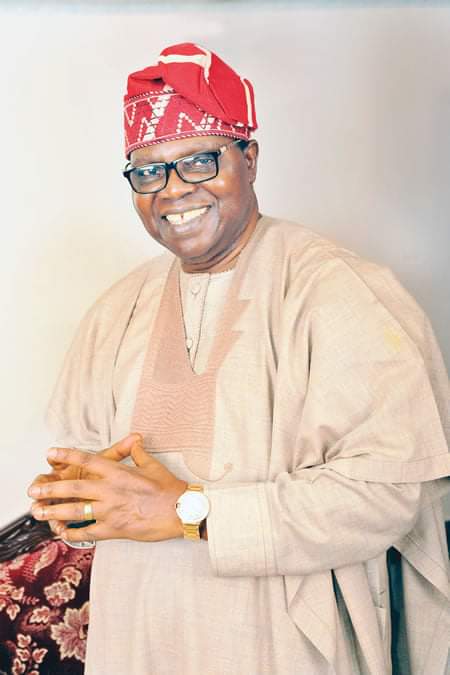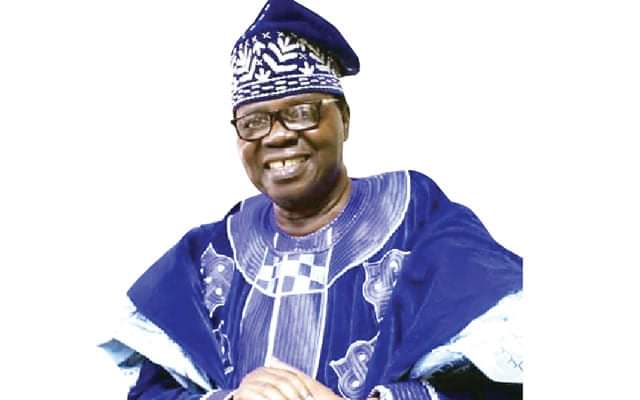Sylvester Asoya
Ever wondered why Ebenezer Obey enjoys followership across age, sex, tribe and religion? The answers are in the philosophy, melody, wisdom, maturity, rhythm and reality associated with his songs.
He is the supreme commander of Juju, a music genre he popularized and dominated for many years. But Ebenezer Obey is more than just a juju musician in the music world. Apart from his influence which stretches far and wide, this important Nigerian artiste is also a mentor and a respected voice even outside music. One remarkable thing about Obey the musician, is that he does not carry the burden of perceptions of music or the controversies usually associated with performance artistes around the world.
This is the reason he is loved by all, irrespective of age, sex, tribe and religion. No wonder he was regarded during his active playing days as one of Nigeria’s biggest crowd pullers even outside the South-West where he hails from. Among his fans, they also agree that one of his major strengths is his ability to compose great tunes around proverbs and everyday life for the enjoyment of the Yoruba and non-Yoruba alike. Moreover, the fact that everyone enjoys the works of this highly gifted Nigerian musician says a lot about his creativity, skills and delivery.
So whether you are listening or dancing to Milikki, Austerity Measure, Ema se lo, Yungba Yungba, Olomi Gbo Temi, Aimasiko, Edumare Soro Mi Dayo or The Horse, The Man and The Son, the message and rhythmic sequence remain loud and clear. Through his music, he addresses social, economic and political issues. In his songs, he also comments and engages his audience in a most riveting manner, breaking language barriers and forcing people to the dance floor. He is a musician who reveals. His works also address societal concerns, cultural changes, social realities and point to the direction where humanity is headed even as he sometimes predicts what may happen in future.

Mrs. Olusola Abdul-Beckley, a polyglot and retired school headmistress who incidentally hails from Ogun, Obey’s home state, recalls the impact of the musician’s music on her life in her teenage years. “I love his music. The reason is that he sings about the things happening around us. He also sings about what people do and say. And most of his songs are very inspiring. One of the songs is entitled: Kosogbo Ni To Leda, which literally means that there is nothing in this world anyone does that would please everybody. People must find fault with your actions no matter how good, even if you kill yourself for them, they will still complain”, she says.
Abdul-Beckley provides further insight on the relevance and topicality of his works. According to her, Obey has wisdom; when he sings, everyone listens and learns. That is why mature and older people are hooked to his songs. It is difficult for anybody to ignore Obey, the music legend. His songs are beautiful and I enjoy all of them till this day”.

Stanley Okoronkwo is another fan from the South-East. Okoronkwo, a film maker and former entertainment editor with one of Nigeria’s national newspapers says his first contact with Obey was through his father. “My father is a great fan of Ebenezer Obey. He used to bring his records home and we all enjoyed his songs. That was how it rubbed off on me as a child in those days. I don’t understand what he says because I really don’t speak Yoruba language but I am connected with the lyrics because you must not speak his language to appreciate his great musical talent. So I enjoy his music because it cuts across language and tribe and the delivery and rhythm have impact on me”, he reveals.
It is interesting to note that Obey, who is also called a reformer probably for his high values, ethical principles and standards, remains cool-headed even in the face of his achievements. However, the musician has switched positions. Many years ago, he abandoned the secular and flamboyant music world with its pomp and ceremony for gospel music and evangelism. Now, he provides guidance and spiritual nourishment with soul-lifting songs and messages to hundreds of Christians and other people as an evangelist and shepherd of God’s flock.
Born on April 3, 1942 in Idogo, Ogun State, Obey is credited with over 50 albums and hundreds of performances.
(This article was first published in alice, the in-flight magazine of Air Peace.)
• Asoya is a senior journalist and a prolific art writer.